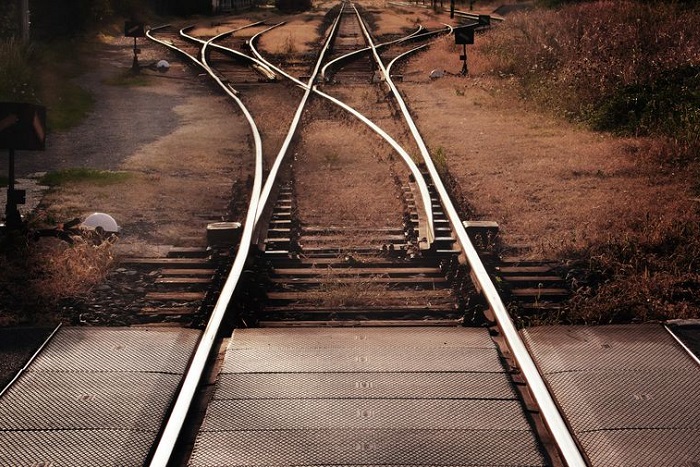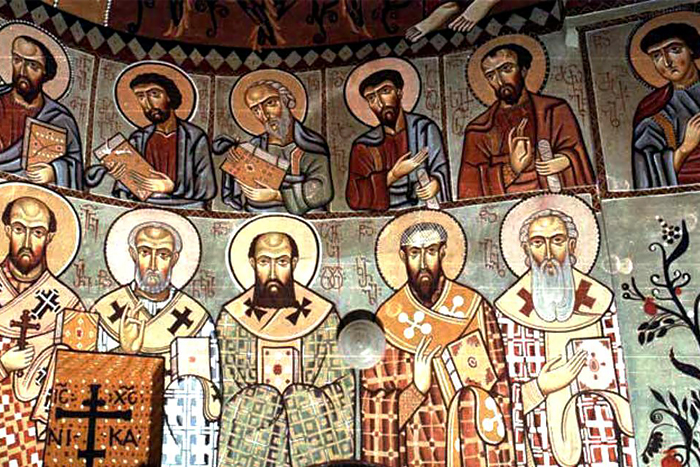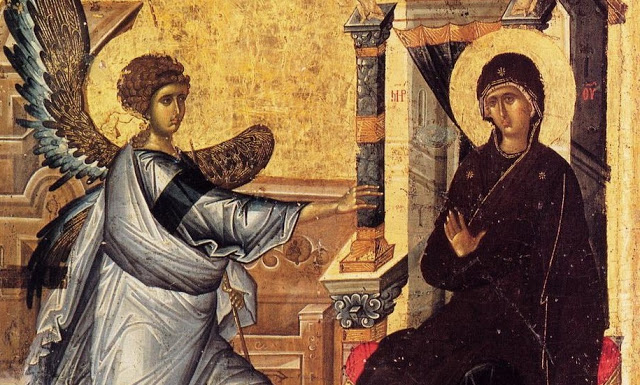
“Theoretical” questions, i.e., those that deal with the key aspects of Christian theology, aren’t a rare occurrence among questions asked by children. Archpriest Alexander Yelatomtsev, the rector of the Nativity of Christ Church in v. Rozhdestveno (Istra Raion, Moscow Oblast) and the spiritual father of Rozhdestvo Orthodox School, answers some of the questions.
“Did Jesus Christ know that people are born in sin? If yes, why did He let them be born in the first place?”
We have to define terms more clearly first. If by ‘being born in sin’ you mean that a human being will be a sinner from the start (i. e., that she will be created to be a sinner), that’s a moot point. Originally, God created humans in his own image and likeness, that is, pure, sinless, and righteous. Adam chose to become a sinner (he could have chosen differently). The spoiled Adam spoiled all his descendants.
So it is more appropriate to put it this way: if God knows that a given person is going to be born in sin (i. e., with a spoiled nature which he or she will invariably inherit from his or her spoiled parents and ancestors), why did He let it happen?
We have the answer to this question. God lets people come into existence so that each person would have the chance to stop being sinful and to become righteous or even holy. It was the reason why He descended on the earth and even went down to hell. All people who stayed in hell had been waiting for him. It gives us – the people of the New Testament era – hope that we will be able to defeat the sin and to resurrect with Christ into eternal life.

“Do we pay for our sins when we fall ill?”
Yes, we do, and no, we don’t. Of course, you get what you asked for if you get a cold after going out without a hat in winter; or if you eat too much sugar and then get diabetes. Here, the cause is directly linked to the effect. However, there can also be an indirect connection when one is rude or arrogant but then the Lord makes him or her humble by sending him illnesses.
Oftentimes, an individual (e. g., a child) falls ill not because of his or her sins and not because his parents have sinned. He or she falls ill to make God’s help more visible. That is, the Lord is going to demonstrate his miraculous power in curing that person, or there is going to be something greater than a healing in the life of that person. It happens that an ill person, even a disabled person, is an example of perseverance and spiritual power. There are plenty of such examples. Nick Vujicic is a living example. You should watch a video about him on the internet. His faith and gratitude to God is impressive. You can also ponder on a Russian saying, “God endured suffering and told us to do the same,” to find out other reasons for our diseases.
“Is there a fate? Is our future cut in stone since the day we are born?”
There is no fate as a prescribed scenario of your life – as something you cannot change. There is a fate understood as a history of one’s life: some events in that history flow out of preceding causes, while some are changed by one’s volition. This variable part is the most interesting part of our fates. It is the realm of our freedom.
Take, for instance, two orphan boys who left their orphanage and got lost in the woods. The causes that led to it are the same for both boys. Both had been abandoned by their parents. Both had been unhappy in the orphanage. Both wanted to look for a different kind of life they didn’t know about. Now, both are shivering, hungry, and scared. Then the most interesting part begins. One of the boys was tired and began to panic. He sobbed and said, “It’s the end, I’m going to die here.” The other boy said, “Well, you do you. I’ll go on.” He prayed to God and mobilized his path-finding skills. Finally, he found a beaten track. Then he faced another choice: he could either run to find a human dwelling or return and pick up his weak friend. These choices lead to various outcomes, don’t they? There is no predestination. People (with God) are the makers of their own happiness.

Afterword for Parents
Dear parents, our wise children have come up with another (probably the most urgent) task for us. We have to help them to acquire a holistic insight of the life and actions of the entire humankind. Christian faith tells us about the beginning, the progress, and the end of human history. It is us Christians who have to figure out and understand everything. Well, to the best of our ability, of course. We must not be lazy.
All fields of knowledge, creativity, or craft can either reinforce our faith or weaken it. It is up to us Christians to follow all thoughts to their logical conclusion and to get to the core of every matter. It was that core that the Lord created. It is the original and primary meaning of life that children seek so insistently. If we join them, we will help them to see both God’s truth and God himself. If we don’t, or if we have given up on our search, we are going to lose what we have got. We will be lost. Being the children of lost parents won’t do any good to our kids.
Translated by The Catalog of Good Deeds



